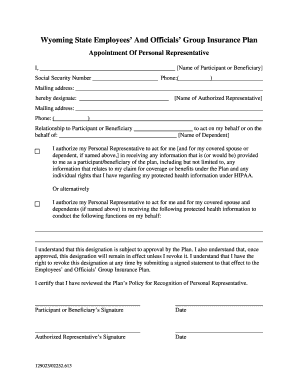Who Can Access A Deceased Patient’s Medical Records? Can a decedent receive phi? Who is the executor of a deceased person? The Rule explicitly excludes from the definition of “protected health information” individually identifiable health information regarding a person who has been deceased for more than years. The HIPAA Privacy Rule (which can be found at CFR Part 1and Subparts A and E of Part 164) establishes national standards which covered entities must follow to protect the privacy of PHI.

Most health care providers are considered a covered entity for HIPAA purpose. HIPAA’s privacy protections continue to apply to an individual’s PHI for years following their death. See full list on pamedsoc. However, this does not mean that a physician must retain a deceased patient’s medical records for years.
Medical records must be retained in accordance with physician licensing board retention requirements. In Pennsylvania, physicians are required to retain medical records for adult patients for at least seven years from the last date-of-service. This requirement is codified in nearly i. According to the Privacy Rule — see CFR §164. An executor is an individual named by a decedent in their will to administer the decedent’s estate. An administrator refers to an individual appointed by a court to administer an estate if the decedent left no will.
Regulations promulgated by the Pennsylvania Department of Health (DOH), which can be found at Pa. A personal representative is a person authorized to act on behalf of an individual in making health care rel. Department of Health and Humans Services (HHS) has a frequently asked questions (FAQ) page regarding access to a deceased individual’s PHI under HIPAA. These FAQs provide further detail on much of the information I have highlighted above. PAMED’s Quick Consult on “Confidentiality of Med.
An individual’s spouse generally is not the individual’s personal representative for purposes of the HIPAA privacy rule simply by virtue of marital status since in most jurisdictions, one spouse does not automatically have the legal right to make health care decisions on behalf of the other spouse. When patients receive health care, they often have family and friends present who need to be informed so they can support the patient. Although the HIPAA Privacy Rule protects patient privacy it also permits health care providers to discloseinformation to anyone that the patient has agreed my receive information.

Patients will often want close family, friends, and even neighbors to receive information. Often a health care provider will obtain the patient’s consent or agreement to speak to family or friends in advance on an intake form, but it is not necessary to do this in advance. In emergency situations for example, there may not be time to obtain written consent in advance. HIPAA requires that individuals be given the right to agree or object, if possible. A health care professional may orally ask the patient “may I speak to your spouse (son, daughter, neighbor) about your situation?
If the patient is unconscious or unable to answer, a health care professional may use his or her professional judgment to infer that the patient would not object. In both cases the health care professional should discuss only the minimum necessary information required for that person’s role in the care. Qs and As about common situations can be found here. Examples are a spouse or other family member named in a health care power of attorney, a parent or legal guardian of a minor, a person appointed by a court to serve as custodian, guardian or conservator and an executor, administrator, or other person with authority to act on behalf of a deceased individual.
Personal Representative” under HIPAA means a person who has legal authority to make decisions related to health care for an individual. Under HIPAA they are treated the same as the individual and may receive, use and disclose the individual’s protected health information. A full discussion of advance directives (or Living Wills) and health care powers of attorney is beyond the scope of this blog, but two items of note: 1. An advance directive may put decision-making authority into the hands of physicians caring for the patient at the end of life, without requiring family to make decisions, OR it may be written to include family members in decision-making.
A health care power of attorney may be comprehensive, allowing the person appointed to make all health care decisions (usually after a medical certification of incapacity) or it may be limited to decisions about discontinuing life support. For PHI disclosures that fall outside of the HIPAA Privacy Rule, covered entities need to receive “a written HIPAA authorization from a personal representative of the decedent who can authorize the. Q: Who can legally access a deceased person’s medical records? A: The patient’s designated personal representative or the legal executor of his or her estate has a right under law to access the records.
If the patient died without naming a personal representative or executor, state law determines who by default possesses the right. Find Hipaa Compliance Website. Search for Hipaa Compliance Website More Information at Consumersearch.
Thus, a personal representative generally has the same rights to access a deceased individual’s PHI as the individual would have had themselves. This is clear cut when a patient has signed a HIPAA release or named an executor to his or her estate. Similar to personal representatives of living individuals, representatives of deceased individuals may exercise the decedent’s HIPAA rights.

NOTE: A decedent’s PHI regarding the performance of an autopsy can only be used or disclosed pursuant to a written authorization. Also, form court orders for disclosure may be available from each agency’s designated attorney. The right to access personal medical records passes from the individual to the executor after their death. State laws, operating within overall HIPAA guidelines, largely determine precisely how medical records may be obtained.
The key with family and friends is to follow the patient’s wishes – you can and should engage with them when they’re involved in the patient’s care.
No comments:
Post a Comment
Note: Only a member of this blog may post a comment.